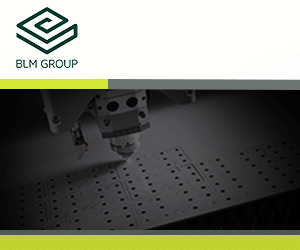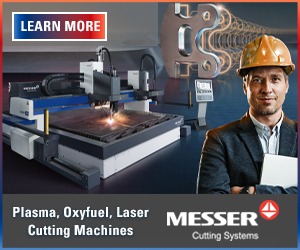What Lies Ahead with ERP
As metalworking grows ever more competitive, Mike Melzer and Dusty Alexander of Global Shop Solutions explain why managing the supply chain of your external factory is more important than ever.
Posted: March 18, 2013
Powerful data integration interfaces. More manufacturers are demanding that their suppliers have the ability to exchange data and perform routine business transactions electronically. Going forward, the ability for manufacturing firms to integrate electronically with their customers all the way down to their actual machines will be huge.
Improved decision-making. A faster pace of doing business requires faster decisions. With so much information available to inform those decisions, companies need powerful systems for accessing and organizing the data in the right formats.
To address the certification tracking issue, functionality has recently been developed that allows shops to automatically generate all the required certs and documents for any part, product or raw material with one touch of a button.
To help manufacturers make better decisions, much effort is being invested in improving dashboards – customizable screens that provide a quick overview of how the business is doing and where it’s going. Through charts, graphs, spreadsheets and other visual tools, dashboards provide snapshots of the business as a whole or any particular area a manager wants to focus on. This enables shops to easily track their most important metrics while also identifying and analyzing trends in the business.
CRITICAL ISSUES IN ERP
Looking ahead, we see two critical ERP issues for small to medium-size manufacturers: making sure your ERP system easily integrates with other systems, and continually growing with your ERP system.
One problem we see throughout the industry is that a shop will implement an ERP system, achieve some transformative results in the first year or two, and then get comfortable with the status quo. To keep up with today’s rapidly changing manufacturing environment, the factory must demand more from their ERP system. The manufacturer must keep current with all of the new features and updates, and constantly develop their staff’s ability to use the software.
If a shop hasn’t talked to their ERP vendor in two years, they are falling behind – and it’s a lot harder to play catch-up than it is to stay current. We constantly urge manufacturers to keep moving forward with the software by developing new skills and competencies and finding new ways to use it to improve their business.
HOW TO ADDRESS THESE ISSUES
To keep job shops and contract manufacturers current with ERP advances, suppliers must offer continuing education and training in many different formats, including ROI sessions, road shows, classrooms, virtual trainings, etc.
They must also continue to focus on building as much customization into their applications as they can so that shops can write their own customizations or R&D people from the supplier can do it for them. For example, we can write customizations that only a handful of our customers will use, but we can also write customizations that become a standard part of the system for everyone to use. And everything else stays intact for future releases so the customization doesn’t break when shops load the update.
THE IMPORTANCE OF CONTINUITY
Increasingly, shops are looking for one ERP system to manage the entire business. In the past, they would often buy separate packages for manufacturing, accounting, quality, and CRM, and then struggle to make them work together. That approach costs too much time and money, especially when it comes to integration and management of manual databases and spreadsheets. Companies now want it all in one integrated system, so that when they update one part of the system, it doesn’t throw everything else out of whack.
The downside to having only one system is that it makes the shop very dependent on their ERP system. As a result, the relationship between the ERP supplier and the shop becomes more important than ever, not just in terms of service and support (which are huge), but also in terms of ownership continuity.
How long has the ERP supplier been under the same ownership? This is a valid question because so many ERP suppliers have gone through one or more ownership changes while others have been acquired and split up by a much larger company that doesn’t understand the manufacturing industry.
Continuity of ownership gives the ERP user a peace of mind, knowing their technology supplier will be there when they need them. They don’t have to worry about waking up one morning to discover their most important business management tool is suddenly going in a different direction as a result of new ownership.














